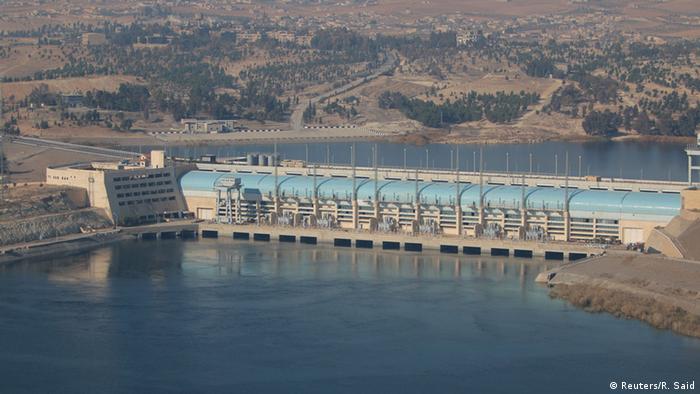The works on the Tişrin Dam on the Euphrates River were stopped due to the water shortage of the Euphrates River by Turkey.
According to the statement of Khalaf, head of the Construction, Cement and Dam Workers Professional Union in the regime government, the level of the dam dropped to 220 m3/h below the agreed amount of 500 m3 per second. al-Hanush.
According to Sadık media outlets, Hanoush stated that the water level in the Tişrin Dam fell below 320 meters above sea level, this level is the dead level that the dam cannot technically operate due to insufficient water supply, and that there are 6 groups in the Tişrin Dam, in case there are water resources in the Euphrates River. will be ready for operation.
He pointed out that 430,000 hectares of land irrigated by the Euphrates River is affected in all eastern regions and around the province of Aleppo, and that it needs at least 250 m3 per second to meet the crop needs in these areas, which constitutes the entire determined share. In addition to the impact of the Euphrates for Syria, more than 7 million citizens need drinking water in Aleppo, Raqqa and Deir ez-Zor.
In a related context, civilians in northeastern Syria voiced their fear of the high pollution level in the Euphrates due to the low water level, amid warnings of the consequences this will have on agriculture and groundwater reserves in the region.
According to the news on the New Arab website, Mohammad al-Haram, Head of the Environment Department in Raqqa, said that the decrease in the level of the Euphrates River caused the increase of sewage waters and salty agricultural channels, which led to the emergence of swamps in the region. areas where these drains spill into the river.
Al-Haram pointed out that the drop in water level also causes a decrease in agricultural land area, contributing to the high costs of water distribution, boreholes, random depletion of groundwater and falling water levels. surface and groundwater wells.
Site, a person living in the city of Raqqa, conveyed that the main drinking water source of the people is the Euphrates, and stated that the pollution of this water poses a direct threat to the lives of the residents and the areas connected to it. This.
Pointing out that the river turned into ponds with an unbearable odor during the drought, the Minister drew attention to the fact that “the waters are not as fresh and clean as before”, and called for being sensitive to this disaster.



















